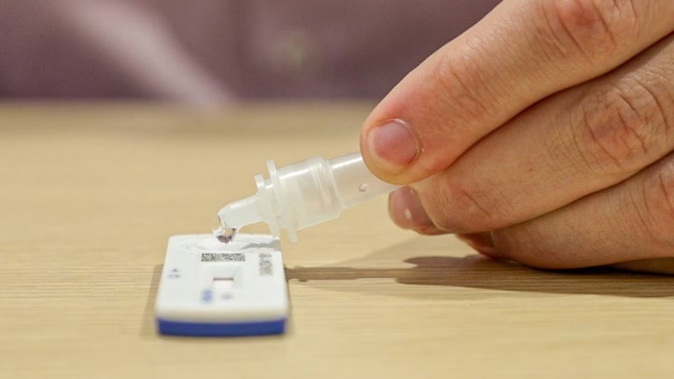
Hundreds of people are still in hospital with Covid-19, just-released figures show – but a modeller is “cautiously optimistic” New Zealand’s summer wave won’t worsen from here.
Te Whatu Ora this afternoon reported 343 people were in hospital with coronavirus as at midnight Sunday – up from 324 the week before – along with more than 7000 new cases over the past seven days.
Another four deaths were also reported, bringing the toll since the start of the pandemic to 3748.
ESR’s most recent surveillance meanwhile showed the national average of virus detected in wastewater plants was still at elevated levels, albeit with much week-to-week variability.
That average stood at 4.61 million copies of the virus detected per person, per day on January 14 – sharply down from 8.59 million copies the week before, but still four times the levels reported six months ago.
/cloudfront-ap-southeast-2.images.arcpublishing.com/nzme/TU5LWZ7KPFCM7KMXZ36ZB2DXZ4.jpg)
This graph, up to January 14, shows average SARS-CoV-2 genome copies detected per person per day in wastewater for New Zealand, along with the reported case numbers. Source / ESR
Covid-19 modeller Professor Michael Plank suspected case numbers had reached a plateau-like pattern, which began building back in November.
“Really, it hasn’t come down yet, but it’s not rocketing upwards as well.”
Plank said there were likely two “counter-balancing forces” behind the picture.
One was the JN.1 subvariant, which arrived in New Zealand just as the wave was building and had likely been keeping pressure on case numbers ever since.
- Covid-19 update: 7417 new cases, 27 further deaths
- Latest Covid wave 'disproportionately' hospitalising Pacific people
- Fifth Covid wave hits new high as Govt looks at ending free RATs
- Summer Covid wave: 'We may see more peaks'
While ESR hadn’t yet released new data from ongoing variant surveillance since before Christmas, Plank expected the highly-mutated JN.1 Omicron off-shoot now accounted for at least half of new infections.
“At the same time, the start of school holidays, and then many people being out of the office over the summer period, has probably put a bit of a dampener on [the wave],” he said.
“So, these two things have kind of combined to produce this plateau.”
It still wasn’t yet clear whether the wave had peaked.
“I’d be cautiously optimistic that we’ve either past the peak, or that we’re on this extended plateau, but numbers aren’t going to go up too much further from here,” he said.
“Maybe we stay that way for another couple of weeks, before numbers will start to come down.”
He added the medium-term picture was looking more optimistic, with no other variants on the horizon – yet – that appeared capable of sparking another wave.
“In this case, we’d expect to see numbers continue to come down for several months, unless something crops up that we can’t see at the moment.”
The new numbers come as Otago University researchers have found Long Covid to be closely related to Myalgic Encephalomyelitis /Chronic Fatigue Syndrome (ME/CFS) - as had been suspected – and that sufferers could benefit from a co-ordinated treatment strategy.
As at last month, more than 2000 people had registered as having Long Covid, with another 1200 having signed up to join New Zealand’s official registry – but experts suspected the country’s true burden to be much larger.
Jamie Morton is a specialist in science and environmental reporting. He joined the Herald in 2011 and writes about everything from conservation and climate change to natural hazards and new technology.
Take your Radio, Podcasts and Music with you









